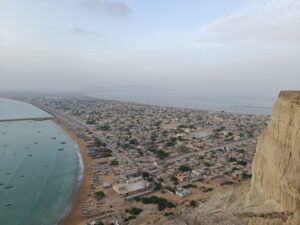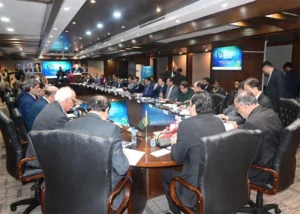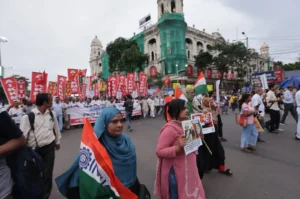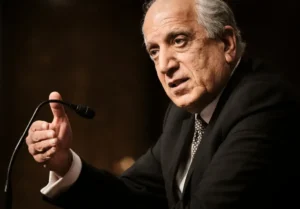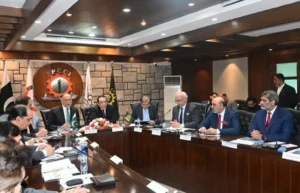In recent weeks, Taliban Foreign Minister Amir Khan Muttaqi has emerged as a vocal critic of Pakistan, accusing the country of fueling instability in Afghanistan by hosting conferences involving Afghan exiles. Muttaqi’s statement, however, masks a glaring contradiction between Taliban rhetoric and the ground realities in Afghanistan, where several anti-Pakistan terrorist groups are openly operating with the tacit support of the Afghan Taliban. This insight dives into the stark disparity highlighted by Muttaqi’s comments and the facts about Afghanistan’s continuing role as a safe haven for hostile militants targeting Pakistan.
Muttaqi’s Narrative vs. Ground Realities
Muttaqi’s recent critique frames Pakistan as a destabilizing force, alleging that Islamabad’s hosting of meetings involving diverse Afghan opposition figures is detrimental to Afghanistan’s stability. The planned Islamabad conference “Towards Unity and Trust,” aimed at uniting Afghan political factions, women’s rights activists, and exiles, forms the basis of his criticism. While Muttaqi’s narrative suggests Pakistan’s diplomatic efforts provoke disruption, the reality is far more complex. His statement fails to acknowledge that key terrorist groups aligned against Pakistan remain entrenched in Afghan territory, which directly undermines Taliban claims of promoting security and stability.
The BLA’s Presence in Afghanistan
Despite Taliban proclamations, Afghanistan remains a base for multiple anti-Pakistan militant organizations harboring deep hostility toward Islamabad. The Balochistan Liberation Army (BLA), a designated terrorist group responsible for numerous attacks inside Pakistan, is confirmed to maintain sanctuaries within Afghan provinces, notably Kabul and Farah. Key BLA operatives, including Nadir Marri, Fazli, Lalu, Zurain, and Yasmeen Balco, continue to operate in these regions with relative impunity. Farah Province, in particular, hosts militant training facilities used by the BLA to strengthen their capabilities against Pakistan. Over 300 attacks credited to the BLA in 2024 alone caused hundreds of casualties among Pakistani security forces, underscoring the threat emanating from Afghan soil.
TTP’s Taliban-Backed Sanctuary
Another glaring contradiction to Muttaqi’s messaging is the sanctuary extended to TTP leader Noor Wali Mehsud within Afghanistan. Far from frustrating TTP activities, the Afghan Taliban provide Mehsud with a monthly stipend reportedly amounting to $43,000, enabling his group’s operational capabilities. The TTP maintains recruitment and training centers across multiple Afghan provinces, including Kunar, Nangarhar, and Paktika, perpetuating a steady flow of militants across the porous borders into Pakistan.
Hafiz Gul Bahadur’s Operations from Afghan Soil
Hafiz Gul Bahadur, a once semi-acceptable Taliban-aligned commander, has shifted his stance post-Taliban takeover, using Afghan territory as a base to launch attacks against Pakistani security personnel. His group’s safe haven status in Afghanistan directly contravenes the Taliban leadership’s supposed disavowal of cross-border terrorism.
The Taliban Decree: Muttaqi’s Contradiction
Muttaqi’s criticism clashes notably with the Taliban’s Supreme Leader Haibatullah Akhundzada’s religious decree that categorically forbids using Afghan soil for cross-border attacks. Despite this decree, terror groups continue to operate from Afghanistan with Taliban acquiescence or direct assistance. Pakistan has called repeatedly for the formal public release of this decree to confirm Taliban commitment to peace, but the leadership has resisted making it public, undermining Muttaqi’s claims about Pakistan’s disruptive role.
Pakistan’s Diplomatic and Civil Efforts to Promote Stability
Contrary to Muttaqi’s narrative, Pakistan has engaged intensively with Afghanistan to curb terrorism and foster stability. Multiple visits by Pakistan’s Inter-Services Intelligence (ISI) chief, military commanders, and foreign ministry officials to Kabul have aimed at strengthening counterterrorism cooperation. Senators, journalists, and religious scholars (ulema) have conducted delegations to engage with Taliban and Afghan civil society on sustaining peace. Organizations such as the Pak Asia Youth Forum (PAYF), Institute of Strategic Studies Islamabad (ISSI), and the International Research Council for Religious Affairs (IRCRA) have promoted dialogue and mutual understanding. Despite these concerted efforts, Afghanistan continues to harbor militants, revealing an unsettling disconnect between Taliban proclamations and actions on the ground.
Regional Dynamics: China’s Growing Concern
Beyond Pakistan’s frustrations, China too has put pressure on Kabul. China threatens to withdraw billions of dollars in investment if Afghanistan fails to curb terrorist sanctuaries threatening Pakistan, signaling a regional consensus on the danger posed by Afghanistan’s failure to control anti-Pakistan militants.
Conclusion: The Need for Taliban Accountability Amid Muttaqi’s Claims
Muttaqi’s statement accusing Pakistan of fueling instability through hosting Afghan exiles’ conferences falls apart when scrutinized against the undeniable presence of hostile terrorist groups in Afghanistan. The BLA’s entrenched hideouts in Kabul and Farah, the Taliban-funded TTP leadership residing comfortably in Afghan territory, and Hafiz Gul Bahadur’s operations all expose the Afghan Taliban’s contradictory role. While Pakistan extends multiple channels of diplomacy, religious dialogue, and civil society engagement in the pursuit of regional stability, Afghanistan under Taliban rule provides base and backing to groups engaged in active terrorism against Pakistan. These realities starkly undermine Muttaqi’s narrative and call for accountable Taliban leadership committed to tangible peace and security, not just rhetoric.
In short, Muttaqi’s reality check demands not only words but decisive actions to end Afghanistan’s use as a launchpad for terrorism, a prerequisite for genuine peace and trust in the region.


